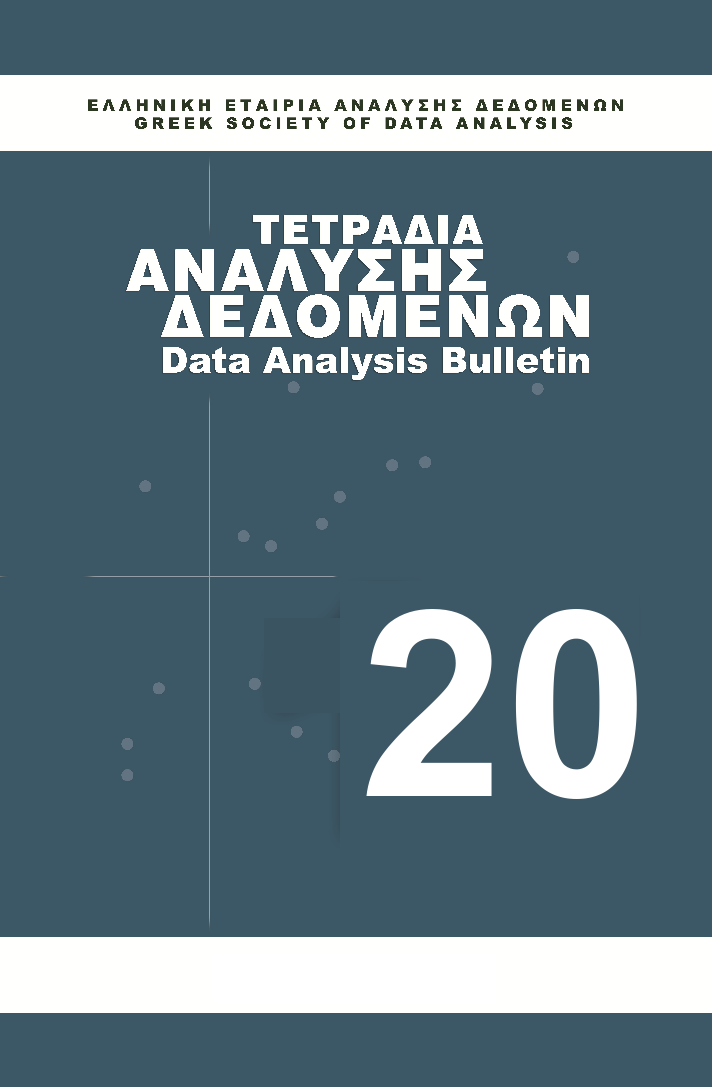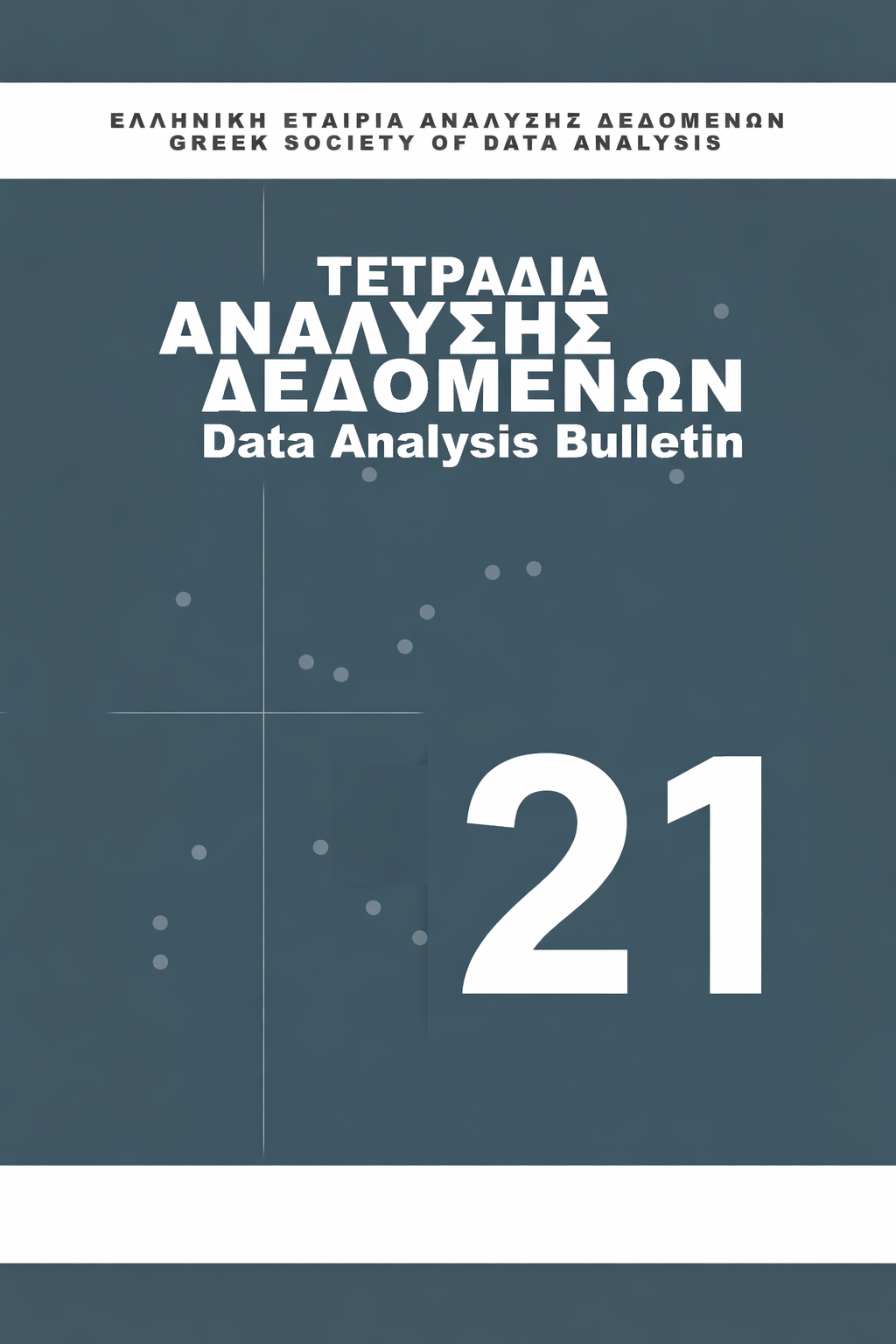Impact of the economic crisis and the coronavirus (covid-19) on businesses in Drama

Abstract
Article Details
- How to Cite
-
Μήτσου Λ., & Gkoliou, M. (2024). Impact of the economic crisis and the coronavirus (covid-19) on businesses in Drama. Data Analysis Bulletin, 20(1), 120–131. Retrieved from https://ejournals.epublishing.ekt.gr/index.php/dab/article/view/32332
- Section
- Empirical studies

This work is licensed under a Creative Commons Attribution-NonCommercial-NoDerivatives 4.0 International License.
Authors who publish their work in the journal DATA ANALYSIS BULLETIN agree to the following terms:
1. Authors will not be charged any submission, processing or publication fees for their work. These costs are covered by the Greek Society of Data Analysis.
2. The copyright of papers published in the journal DATA ANALYSIS BULLETIN is protected by the Creative Commons Attribution-NonCommercial-NoDerivatives 4.0 International license. The Authors retain the Copyright and grant the journal the right of first publication. This license allows third party licensees to use the work in any form for non-commercial purposes only. If third parties modify or adapt the content, they must license the modified material for noncommercial purposes only. If others modify or adapt the material, they must license the modified material under identical terms.
3. Provided that the terms of the licence concerning the reference to the original author and the original publication in the journal DATA ANALYSIS BULLETIN are maintained.
4. Authors may enter into separate and additional contracts and agreements for the non-exclusive distribution of the work as published in the DATA ANALYSIS BULLETIN journal (e.g., deposit in academic repositories), provided that the acknowledgement and citation of the first publication in the DATA ANALYSIS BULLETIN journal is acknowledged.
5. The DATA ANALYSIS BULLETIN journal allows and encourages authors to deposit their work in institutional (e.g. the repository of the National Documentation Centre) or thematic repositories, after publication in DATA ANALYSIS BULLETIN and under Open Access conditions, as determined by their research funders and/or the institutions with which they collaborate, as appropriate. When submitting their work, authors should provide information on the publication of the work in the journal and the sources of funding for their research. Lists of institutional and thematic repositories by country are available at http://opendoar.org/countrylist.php. Authors can deposit their work free of charge in the repository www.zenodo.org, which is supported by OpenAIRE (www.openaire.eu ), as part of the European Commission's policies to support Open Academic Research.



